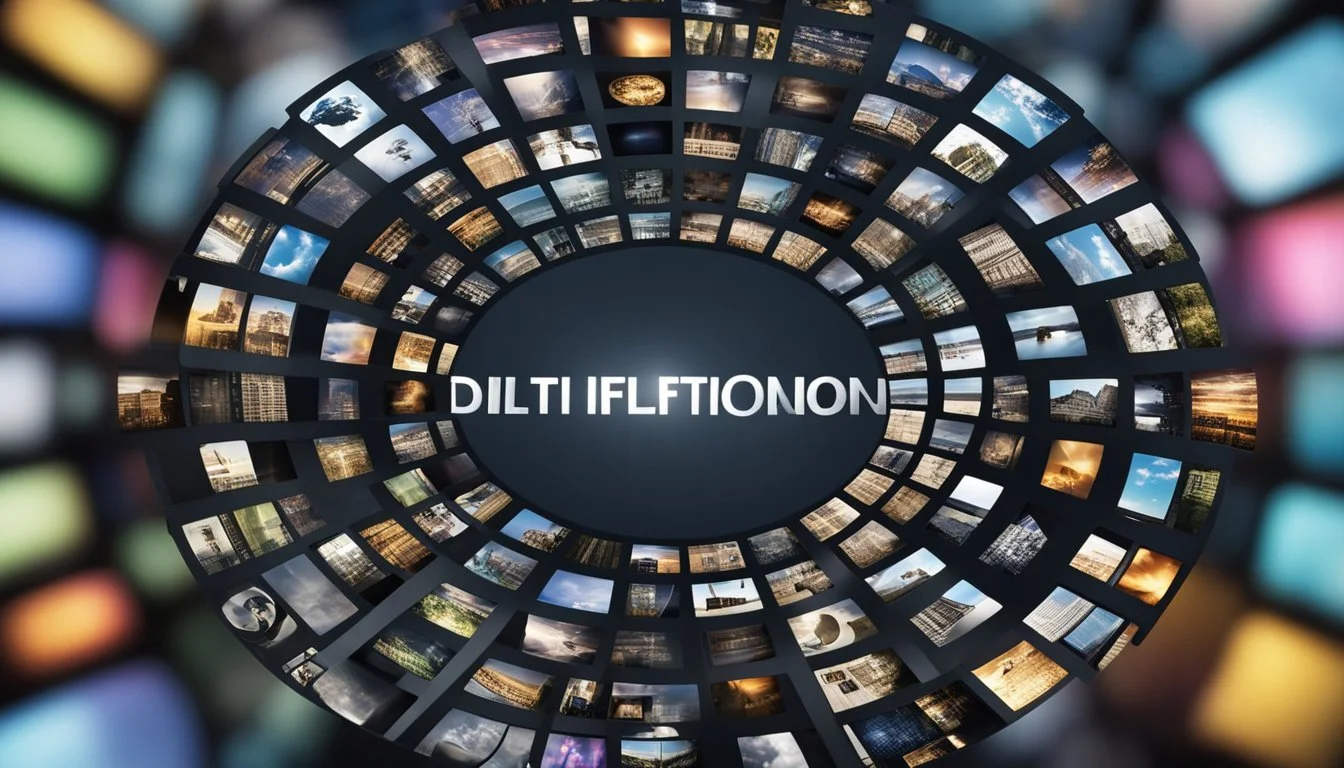8 Films That Show How Intelligence Shapes Our Lives
Exploring the Impact on Society
Intelligence plays a pivotal role in shaping human narratives and experiences, often serving as a fascinating theme in films. These movies explore the complexities of gifted minds, highlighting how exceptional intellect influences personal journeys and relationships.
Through cinematic storytelling, viewers can gain insights into the diverse dimensions of intelligence and its impact on human life. This article delves into films that showcase the profound effects of intellectual prowess, offering audiences a window into the intricate dance between brilliance and everyday existence.
1) Good Will Hunting (1997)
"Good Will Hunting" follows Will Hunting, a young janitor at MIT with an extraordinary gift for mathematics. Despite his genius-level IQ, he prefers a humble life, distancing himself from opportunities that could significantly alter his future.
Unable to fully understand his potential, Will's future seems grim until he meets Dr. Sean Maguire, a therapist who helps him confront past trauma and envision a promising future. Maguire's guidance enables Will to explore his abilities and consider paths previously ignored.
The film, directed by Gus Van Sant, features powerful performances by Matt Damon and Robin Williams. Its depiction of raw intelligence, emotional complexity, and self-discovery continues to resonate with audiences, rendering it a timeless classic.
"Good Will Hunting" has received accolades for its portrayal of personal growth and the complex interplay between intellect and emotion. This story of undiscovered potential is a profound exploration of how intelligence can dramatically shape individuals' lives.
For more information, visit IMDb.
2) A Beautiful Mind (2001)
A Beautiful Mind is a biographical drama based on the life of John Nash, a Nobel Laureate in Economics. It follows Nash's journey as he grapples with the challenges posed by his genius-level intellect and struggles with schizophrenia.
Russell Crowe delivers a compelling portrayal of Nash, whose mathematical brilliance is contrasted by his personal battles. The film delves into the relationship between extraordinary intellectual capacity and mental health challenges, sparking discussions about the "mad genius" stereotype.
Directed by Ron Howard, the movie emphasizes Nash's resilience and the support from his wife, played by Jennifer Connelly. It explores how their relationship plays a crucial role in his journey toward stability.
A Beautiful Mind highlights how extraordinary intelligence does not shield individuals from life's difficulties. Instead, it shows that personal relationships, resilience, and determination are essential components for overcoming adversity.
For more, visit Wikipedia or IMDB.
3) The Imitation Game (2014)
"The Imitation Game" is a biographical drama that delves into the remarkable life of Alan Turing, a brilliant mathematician and computer scientist. It highlights his crucial role during World War II in cracking the Nazi Enigma code, an achievement that significantly shortened the war and saved countless lives.
Set against the backdrop of tense wartime Britain, the film explores Turing's determination and intellect amid professional and personal challenges. Through flashbacks, viewers witness his adolescence, his groundbreaking work at Bletchley Park, and his eventual prosecution for homosexuality, which was then a criminal offense.
Benedict Cumberbatch delivers a compelling performance as Turing, capturing both his genius and his social struggles. The film not only narrates historical events but also sheds light on the often-overlooked personal sacrifices that accompany great achievements.
The story provides a profound reflection on the impact of intellectual endeavor on global history and individual lives. By melding historical fact with dramatic storytelling, "The Imitation Game" offers an engaging look at the life of a misunderstood genius whose work laid foundations for modern computing.
To learn more about the film, visit the Wikipedia page.
4) Arrival (2016)
Arrival, directed by Denis Villeneuve, explores the transformative power of language and communication in shaping human understanding. The film follows linguist Louise Banks, played by Amy Adams, as she works to decipher the complex language of extraterrestrial visitors. Her journey highlights how language influences perception and identity.
The aliens in Arrival communicate using an intricate written language that resembles circular patterns. This unique feature challenges traditional human communication methods and forces a reevaluation of linear thinking. Louise's gradual comprehension of this language brings about profound changes in her perception of time and reality.
The narrative is based on the novella "Story of Your Life" by Ted Chiang, weaving science fiction with philosophical themes. Arrival showcases how intelligence, specifically linguistic intelligence, can bridge gaps between different species and uncover deeper truths about existence.
For more information, visit the Wikipedia page.
5) The Theory of Everything (2014)
"The Theory of Everything" is a biographical film that offers a glimpse into the life of the esteemed physicist Stephen Hawking. Set against the academic backdrop of the University of Cambridge, it depicts his journey from his early career to achieving groundbreaking scientific success.
Stephen Hawking's story is not just about intellectual brilliance, but also about resilience. Diagnosed with motor neuron disease at a young age, he faced immense physical challenges. The film recounts how he defied expectations, continuing his scientific work with unwavering determination.
Eddie Redmayne delivers a remarkable performance, capturing the essence of Hawking's character. His portrayal earned him significant acclaim, including an Academy Award for Best Actor. The relationship between Stephen and his first wife, Jane Hawking, is central to the narrative, exploring both personal and professional dimensions.
Directed by James Marsh, the film is adapted from Jane Hawking's memoir. It beautifully combines the themes of love, perseverance, and intellectual pursuit, offering a comprehensive look at Hawking's personal life alongside his scientific achievements. This poignant film invites viewers to appreciate the profound impact of intelligence and determination in overcoming life's challenges. More Information
6) Interstellar (2014)
"Interstellar," directed by Christopher Nolan, is a powerful exploration of human intelligence and resilience. The film merges hard science with emotional storytelling, showcasing how human ingenuity can navigate complex cosmic challenges.
The story is set in a future where Earth faces environmental collapse, prompting a search for a new home for humanity. It highlights intelligence through its depiction of scientific problem-solving and theoretical physics, greatly contributing to its narrative depth.
With the help of physicist Kip Thorne, the film excels in portraying accurate scientific concepts like wormholes and time dilation. This scientific grounding enhances the film's portrayal of human intellect and the persistence required to explore uncharted territories.
The characters, led by a remarkable performance from Matthew McConaughey, embody the dedication needed to push the boundaries of human knowledge and survival. Their journey through space becomes a testament to humanity's quest to harness intelligence for the greater good.
Interstellar is a testament to how intelligence can be a crucial tool not only in understanding the universe but also in shaping mankind's future. The film's exploration of deep space serves as a backdrop for examining humanity's inherent drive to discover and innovate. Interstellar on IMDb
7) Limitless (2011)
"Limitless" explores the intriguing concept of unlocking the brain's full potential through the use of a mysterious drug. The story follows Eddie Morra, a struggling writer who discovers this transformative pill, which allows him to access all his mental capabilities. As a result, his intellectual prowess dramatically skyrockets, leading to newfound success.
Through Eddie's journey, the film delves into the responsibilities and potential dangers associated with artificially enhanced intelligence. While he enjoys the benefits of heightened cognitive abilities, the side effects pose significant risks to his well-being.
The movie raises critical questions about the ethical implications of using such advancements to outwit natural limitations. This provides a gripping narrative that keeps viewers engaged with its clever plot twists and suspenseful sequences.
The film's portrayal of the human ambition to transcend natural capabilities resonates with audiences. It presents a thought-provoking reflection on the consequences of unchecked power and ambition.
For more information, visit Limitless on IMDb.
8) Rain Man (1988)
"Rain Man" is a film that significantly impacted the portrayal of autism in popular culture. Released in 1988, the movie features the story of Charlie Babbitt and his brother, Raymond, an autistic savant. Raymond exhibits remarkable mathematical abilities and an incredible memory, traits that challenge the way intelligence is often perceived.
The narrative explores the complex dynamics between Charlie and Raymond as they embark on a cross-country journey. While Charlie initially seeks financial gain from Raymond's talents, the story evolves to focus on themes of family and understanding. The film highlights how individual brilliance can reshape relationships and perspectives.
Raymond's character challenged stereotypes and increased public awareness of autism. "Rain Man" brought to light the diversity and complexity of human intelligence, emphasizing that it can manifest in extraordinary and unconventional ways.
For more information on "Rain Man," visit the film's Wikipedia page.
The Role of Intelligence in Personal Growth
Intelligence plays a significant role in shaping how individuals navigate their personal development. Emotional intelligence enhances decision-making processes, while cognitive abilities significantly impact learning and adaptability. Both aspects contribute to personal and professional growth.
Emotional Intelligence in Decision Making
Emotional intelligence involves recognizing and managing one's emotions and the emotions of others. This skill enhances interpersonal relationships and fosters informed decision-making. When individuals understand their emotional responses, they can make rational choices that align with their values and goals.
Individuals with high emotional intelligence are often better equipped to handle stress and conflict. They communicate effectively and empathize with others, which aids in resolving disagreements and building strong relationships. Emotional intelligence supports personal growth by improving social interactions and facilitating more thoughtful, deliberate decisions.
Cognitive Abilities and Learning
Cognitive abilities refer to mental processes such as perception, memory, and logical reasoning. These abilities are critical for acquiring new knowledge and adapting to change. People with strong cognitive skills often learn more quickly and can solve complex problems efficiently.
Cognitive abilities enable individuals to absorb new information, apply existing knowledge to unfamiliar situations, and think critically. They play a pivotal role in education and professional development, allowing individuals to keep up with advancements and adapt to various challenges. Improved cognitive skills contribute to ongoing personal growth by enabling lifelong learning and adaptability.
Intelligence and Social Dynamics
Intelligence plays a crucial role in shaping social interactions and forming relationships. It influences how individuals perceive others and make judgments in social settings.
Influence of Intelligence on Relationships
Intelligence affects relationships in numerous ways. Individuals with high emotional intelligence tend to have more meaningful connections. Their ability to recognize and manage their own emotions helps them to better understand and respond to the emotions of others.
This fosters empathy and communication, strengthening bonds. Those who can navigate complex social dynamics often find it easier to build trust and resolve conflicts. Insightful interactions require not only understanding others' perspectives but also effectively expressing one's own thoughts and feelings.
Moreover, cognitive intelligence can impact relationship dynamics. People who are intellectually curious and open-minded enrich conversations and offer diverse viewpoints. They encourage deeper discussions, enabling partners to explore varied interests.
Social Perception and Judgment
Social perception and judgment are deeply influenced by intelligence. Emotionally intelligent individuals are adept at reading non-verbal cues and understanding unspoken social nuances. This ability enables them to judge situations accurately and intervene appropriately when necessary.
They can discern subtle changes in behavior or tone, revealing much about underlying feelings and intentions. As a result, they often make informed decisions about whom to trust or align with in social settings.
Furthermore, cognitive abilities also contribute to this process by facilitating critical thinking and problem-solving. Individuals capable of analyzing situations from multiple angles can identify biases and avoid jumping to conclusions, promoting fairness and rationality in judgments.






